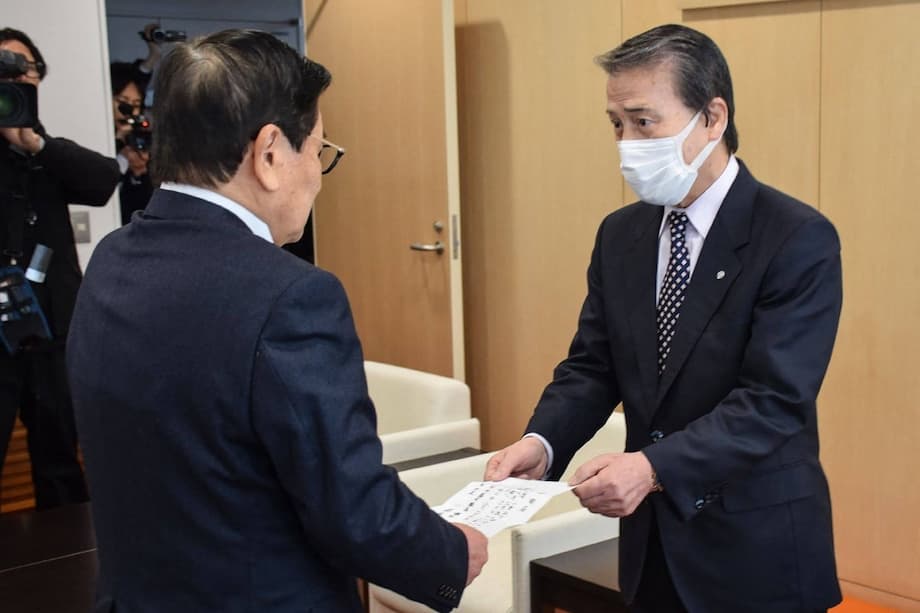Shock result in a small Gifu town
A local election in central Japan has ignited a national backlash after Hideo Kojima, a 75 year old former mayor who resigned following a third party probe that documented 99 instances of sexual harassment, won a seat on the town assembly in Ginan, Gifu Prefecture. Results announced on Monday showed Kojima finished second among ten winning candidates in a field of sixteen. The outcome stirred anger and disbelief online and revived a painful debate about workplace harassment, power, and accountability in public office.
- Shock result in a small Gifu town
- What investigators documented
- How did he still win a seat
- What the law allows and what the assembly can do
- The town hall now has victims and the accused under one roof
- Online anger and a wider debate about gender
- Parallels in other Japanese races
- What could happen next in Ginan
- Key Points
Kojima quit the mayor’s post in March 2024 after investigators described a pattern of misconduct toward women staff members at town hall, including groping and unwanted touching. Despite the findings, he maintained public support from enough voters to return to elected office. In a brief comment to local television after the count, Kojima argued that the result validated him and urged critics to move on.
Introducing himself to the cameras as a newly elected assembly member, Kojima framed the vote as a verdict on his character.
Hideo Kojima, newly elected Ginan town assembly member and former mayor: “The election proves residents trust me. Do not mention the sexual harassment claims again.”
What investigators documented
The allegations against Kojima came to light after reporting by the weekly magazine Shukan Bunshun prompted Ginan to commission a third party investigation. The committee’s report, released in February 2024, listed 99 cases of sexual harassment involving multiple women staff members. According to the findings, Kojima touched a colleague’s breasts and buttocks, patted women on the head, and made comments and demands that made subordinates feel uncomfortable. Several victims still work at town hall, which means the municipality must now protect employees while also dealing with an elected official who is the subject of the findings.
Patterns described by the report
The report alleged that Kojima would boast that his hands were fair and smooth and compel female employees to touch them. It said he rolled up his trousers to show his legs and told women to touch, asked one employee to bend over, and made other inappropriate remarks. Some workers reportedly used disinfectant spray after being touched. Investigators also concluded that he used his authority to intimidate staff, saying things like “you are fired” or “you will be demoted” on a near daily basis. The committee warned that parts of the conduct could meet elements of crimes under Japan’s penal code, described today as nonconsensual indecency.
During the probe, a survey went to 193 municipal employees. Of the 161 who responded, about 53 percent of men and 58 percent of women said the mayor had done something that made them feel uncomfortable. Kojima denied parts of the report at a 2024 news conference, saying his gestures were misinterpreted and insisting that, for example, head pats were meant as gratitude. He criticized the committee’s work as biased. The town’s documentation and the public record, however, remain accessible for residents and the assembly to review.
How did he still win a seat
Observers inside and outside Gifu struggled to square the documented harassment with Kojima’s comfortable result. Local context helps explain some of the outcome. Kojima is a known quantity in Ginan politics. He served as a town assembly member before his mayoral term and, including by elections, this win marks his eighth successful run for office, according to Japanese media. Name recognition, established networks, and long relationships with civic groups all help candidates in municipal contests, where shoe leather politics and personal ties often outweigh party labels.
Turnout and local networks
Local elections in Japan often draw modest turnout compared with national races, and that can give well organized candidates an advantage. Regular voters tend to be older and may prioritize familiarity, perceived administrative competence, or the delivery of local services. In a crowded field with multiple newcomers, a longtime officeholder with a base can secure a seat with a concentrated vote. That dynamic does not erase the controversy, but it helps clarify how a candidate under sustained criticism can still finish near the top of the tally.
Kojima also positioned himself as an experienced hand who could help steer town finances and welfare programs. His posture likely resonated with some residents focused on day to day issues. The same calculation has appeared in other Japanese races where questions about conduct competed with evaluations of performance or campaign promises.
What the law allows and what the assembly can do
Many readers asked why Kojima was eligible to run at all after the report’s findings. The answer lies in how Japan regulates candidacy for public office. Individuals are generally barred from running if they have certain criminal convictions or are serving specified sentences. Kojima has not been convicted of a crime. Resignation from the mayor’s office, in itself, does not disqualify someone from seeking another elected post.
Local tools for accountability
Local assemblies in Japan can censure members and can adopt rules that restrict committee assignments or set standards for conduct. Residents also have recourse through the recall system, which allows citizens to petition for a vote to remove a sitting assembly member. That process requires significant public support and formal verification, then a special election. Whether there is public appetite for such a step in Ginan is not yet clear.
New ordinances in Ginan
After the scandal, Ginan adopted a harassment prevention ordinance in March 2025. The rules allow independent lawyers to form a harassment countermeasures committee to review allegations, including those involving a mayor. A separate ordinance addresses cases where an assembly member either harasses others or is a victim. These measures are designed to formalize reporting channels and protect employees from retaliation. They also clarify how the town will handle cases when a public official is accused, which is directly relevant now that Kojima sits in the chamber.
The town hall now has victims and the accused under one roof
Ginan officials now confront a sensitive workplace problem. Multiple employees who reported harassment remain in their jobs. Kojima, who is accused in the public record, is back in the same institution as a lawmaker. Town leaders must ensure that victims can work without fear and that fair procedures are followed if new complaints arise. They also need to prevent any interactions that could lead to intimidation, retaliation, or perceived pressure.
Good practice for a safe workplace
Creating clear boundaries is essential in public sector settings. That can include rules that bar one on one meetings between the accused official and reporting employees, protocols for chaperoned interactions inside government buildings, and mandatory recusal by the official from any personnel related deliberations. An independent intake line for complaints, trauma informed support for staff, and regular training for all assembly members and managers are also standard steps. Transparent communication about these safeguards can help rebuild trust inside town hall.
Online anger and a wider debate about gender
The result spilled onto social platforms, where many users questioned what the vote said about attitudes toward harassment in politics. Comment threads filled with frustration and solidarity with the women who came forward. There was also debate about respecting election results while still condemning misconduct.
One social media user expressed disbelief that resonated across the threads, reflecting how the story struck a nerve far beyond Gifu.
A user on X, reacting to the election: “So voters in the town do not care about employees who were sexually harassed? Shame on you.”
Japan has made incremental progress on workplace harassment, but advocates argue that victims still face barriers to reporting. The global #MeToo movement gained traction later in Japan than in many Western countries. Even so, several high profile cases in recent years have brought new attention to power harassment and sexual misconduct in government and media. The World Economic Forum’s 2025 gender gap index ranked Japan 118th out of 148 countries, underscoring concerns about women’s representation in politics and leadership. That context shaped reactions to Kojima’s return to office.
Some readers also pushed back at media coverage, saying voters had a right to weigh all factors and make their own judgments. Others said that honoring an election result does not preclude hard questions about safety in government workplaces. Those fault lines mirror a broader national conversation about how Japan balances democratic choice with ethical standards for public service.
Parallels in other Japanese races
Kojima’s comeback is not the only recent case where controversy did not end a political career. In Hyogo Prefecture, former governor Motohiko Saito won reelection after he lost his position in a no confidence vote related to power harassment accusations. National and regional media covered the allegations extensively, yet Saito prevailed in a crowded race. Analysts pointed to social media organizing, distrust of traditional outlets, and a focus by supporters on his policy record as factors in that outcome. The Hyogo case differs in its facts and seriousness from the Ginan allegations, but both illustrate how some voters separate conduct concerns from evaluations of job performance or reform agendas.
Trust in performance versus conduct
When scandal dominates headlines for months, some voters discount the allegations, especially if they view the accused official as a reformer or effective manager. Others decide that personal conduct is disqualifying regardless of results. Those competing instincts, magnified by social media and fragmented information sources, have shaped several recent campaigns. The Ginan election shows how those currents can play out at the smallest scale of Japanese politics, where long standing relationships and name recognition can override even serious investigative findings.
What could happen next in Ginan
In the coming weeks, Kojima will be sworn in and assigned to assembly committees. The chamber can consider a censure or other resolutions that set expectations for his behavior. The harassment prevention ordinance empowers independent lawyers to review any new claims or alleged violations of conduct rules. Town administrators can implement access controls and safeguards for employees who reported harassment. Residents who want a stronger response may explore a recall petition, a legal mechanism that requires significant signatures and, if certified, triggers a vote on whether to remove a sitting member.
Kojima has shown no sign that he plans to revisit the investigation’s findings. When asked previously about the harassment report, he shut down the topic.
Hideo Kojima, speaking to reporters earlier this year about the scandal: “There will be no discussion on that topic.”
Whether Ginan’s new rules and its political institutions can protect staff and restore public trust will be tested in the months ahead. The town’s leaders will have to manage everyday business while honoring the voices of employees who stepped forward and the will of voters who just returned a controversial figure to office.
Key Points
- Hideo Kojima, 75, resigned as Ginan mayor in March 2024 after a third party report listed 99 sexual harassment cases. He has now won a seat on the town assembly.
- He finished second among ten winners in a field of sixteen candidates, according to the town’s election site.
- Investigators described groping, coercive touching, intimidation, and comments that made staff uncomfortable. Some acts could meet elements of nonconsensual indecency under Japanese law.
- Kojima denies parts of the report and told local TV that the election shows residents trust him, adding that critics should stop bringing up the claims.
- Multiple victims still work at town hall, creating a sensitive workplace challenge now that Kojima is an assembly member.
- Ginan adopted new harassment prevention ordinances in March 2025, including provisions for cases involving a mayor or an assembly member and allowing independent lawyers to review allegations.
- Local assemblies can censure members, and residents can seek a recall, but there is no automatic ban from office without a criminal conviction.
- Online reaction was intense, with users expressing anger and sympathy for the women staff. The result revived debate about gender equity and accountability in Japanese politics.
- Similar patterns have appeared elsewhere, including Hyogo, where a former governor won reelection despite a power harassment scandal, highlighting how some voters prioritize performance or distrust media narratives.
- Next steps in Ginan include committee assignments, potential censure motions, implementation of workplace safeguards, and possible citizen led actions under recall laws.












